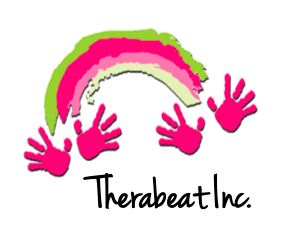Designing the new website gave me an opportunity to look up articles I have written in the past! It's crazy to think this article, "Keep the Beat, the ABC's of Music Therapy", in the DSAA newsletter was written in 2007!
How did you learn your ABC’S? Most would say they learned their ABC’s “through singing the ABC song”. It is common knowledge that music can be an invaluable asset for teaching mental and/or physical skills to anyone of any age or ability. Simply stated, most individuals are motivated to learn through the use of music.
This principle serves as the springboard for Music Therapy. By definition, Music Therapy is the clinical and evidence-base use of music interventions to accomplish individualized goals within a therapeutic relationship by a credentialed professional who has completed an approved music therapy training program—[American Music Therapy Association, 2005].
Music Therapy should not be confused with music education. Rather, it is a well planned treatment discipline that includes definite goals and objectives, encompassing the physical, psychological, social, communicative, and behavioral needs of the individual. Children and adults with Down Syndrome can be effectively treated through Music Therapy. Clinical sessions can be tailored to address all of the developmental domains: gross and fine motor skills, cognitive, adaptive, and social/emotional.
As with all therapy disciplines, each Music Therapy treatment plan should be customized to address the specific needs of each individual client. As a Music Therapist, I currently serve many children with Down syndrome. Sessions are never the same, and the music and activities are always different. However, I always strive to design treatment plans that integrate many of the principles of physical, occupational, and speech therapy in a format that is fun and productive for the client.
While most of my clients begin music therapy with a primary focus to increase developmental goals, in the end many of them find that their functional gains are also supplemented with the growth of new and unexpected outlets for creative expression. - Jennifer Walker Puckett, MT-BC,
